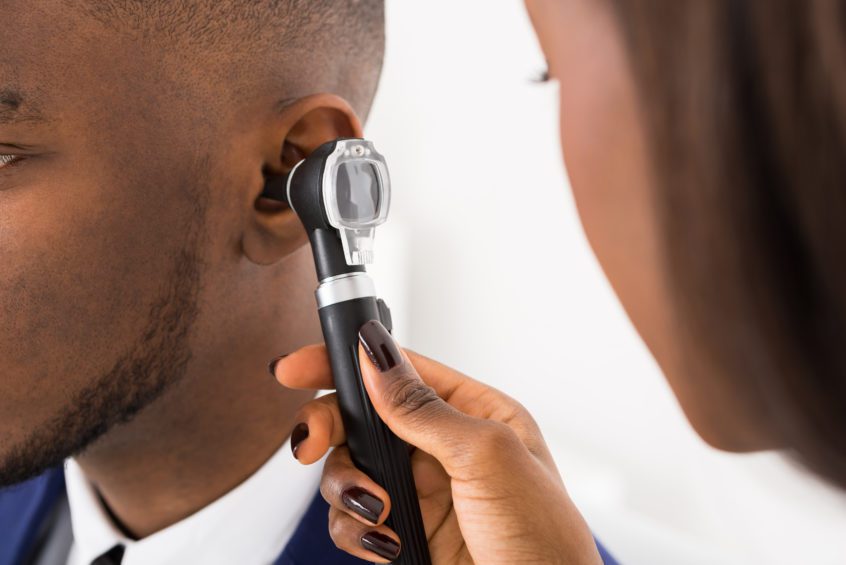If you’re noticing that you’re turning the TV volume up on “blast” and you’re constantly asking “What?” a lot, it may be time to have a comprehensive hearing evaluation. But what qualities should you look for in an audiologist? Here are five that are absolutely essential to your success with hearing aids.
- Education—An audiologist is a degreed professional who specializes in the diagnosis and non-medical treatment of hearing loss, tinnitus, and balance disorders. Audiologists receive extensive education in hearing and balance disorders. Audiologists have earned doctoral degrees. You may look for the credentials Au.D., (Doctor of Audiology—clinical degree); Ph.D. (Doctor of Philosophy—research and/or clinical research degree); or Sc.D. (Doctor of Science—usually a clinical degree) to designate doctoral training.
As part of their four-year doctoral training, these audiologists spend a final year completing an externship experience supervised by a licensed audiologist. The externship provides practical, hands-on, advanced experience.
- Professional Associations—The audiologist you choose to work with should be a member of a professional organization, such as the Academy of Doctors of Audiology or the American Speech-Language-Hearing Association and should uphold the professional code of ethics from one of these organizations. These organizations not only provide the audiologist with opportunities for advanced education and professional development, they have the best interests of the consumer at heart.
- Best Practices—Audiologists, like many healthcare professionals, use a set of best practices and standards to be certain they perform the appropriate testing and make recommendations that are in the best interests of the patient. One of these standards is the use of specialized diagnostic and verification equipment, including real-ear probe microphone and speech mapping measures. Only 20 to 30 percent of all audiologists use this additional technology, but these sophisticated tests independently verify how well a hearing aid functions while in the patient’s ear. This is considered one of the most important standards of care for fitting hearing instruments.
- Specialty Care—Many audiologists specialize in prescribing, fitting, and adjusting hearing aids and other hearing assistive devices. In addition, audiologists also screen the hearing of newborns, teach listening skills and strategies, and assess individuals with central auditory processing disorders. At Associated Audiologists, we have an audiologist whose expertise is in diagnosing and managing tinnitus and misophonia (sound sensitivity). We also have an audiologist who specializes in diagnosing and treating dizziness and balance disorders. Audiologists may be invited to provide clinical teaching and adjunct clinical supervision at universities and colleges that have audiology programs. Many members of the Associated Audiologists team perform this service for coursework performed at the University of Kansas Medical Center.
- Reviews—Look for online reviews. Authentic reviews from real patients give others a sense of the practice’s commitment to delivering a quality patient experience. Associated Audiologists asks its patients to share their experiences with the practice. These reviews have been overwhelmingly positive. In fact, we have more than 900 patient reviews posted from real patients citing the dedication and professionalism of our team. You can read them for yourself here.
With more than 15 doctoral-level audiologists, we pride ourselves at Associated Audiologists on providing our patients with outstanding customer service, including state-of-the-art diagnostic services and the latest hearing aid technology.
Schedule an appointment and experience the difference a doctoral-level audiologist can make in your life.



